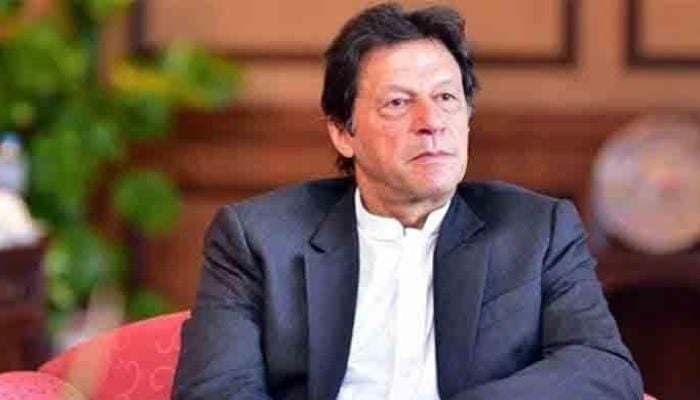Will Article 62(1)(f) apply to Imran Khan?
The political turmoil facing Pakistan is far from over after the order of the Election Commission of Pakistan
August 03, 2022

The ECP has ruled that the PTI knowingly and wilfully received unlawful funds from a number of foreign companies and foreign nationals and has withheld and concealed – from the ECP – the party’s financial information annually.
The “grossly inaccurate and wrong” financial accounts of the party were submitted alongside certificates signed by PTI Chairman Imran Khan himself for five straight years from 2008-2009 and 2012-13, validating that: (a) no funds from any source prohibited under the law were received by the party; and (b) the statements of accounts submitted by the party contained an accurate financial position of the party.
The Political Parties Order, 2002 (PPO 2002) is the operative law behind the ECP order in a nearly eight-year old case of mismanagement and misuse of party funds and other illegal matters in the PTI. Like the erstwhile Political Parties Act (PPA) 1962 and the current Elections Act, 2017, it prohibits foreign funding of political parties and defines foreign funding received by a party as “any aid, financial or otherwise, from any government or political party of a foreign country, or any portion of its funds from foreign nationals.”
Clause 6 (3) of the PPO 2002 further states that “any contribution made, directly or indirectly, by any foreign government, multi-national or domestically incorporated public or private company, firm, trade or professional association shall be prohibited and the parties may accept contributions and donations only from individuals. Clause 6 (4) further stipulates that any contribution or donation prohibited under this Order shall be confiscated in favour of the state.
As per Article 17 (3) of the constitution which stipulates that every political party shall account for the source of its funds in accordance with law, the PPO 2002 mandates each party to submit an annual consolidated statement of its accounts alongside a certificate by party leader stating that party has not received funds from any prohibited sources and the statement is an accurate depiction of financial position of party. The PPO 2002 also states that if a party is found to receive any funding from foreign sources, the party would be dissolved and its membership would be disqualified.
Now that the ECP has declared that the PTI has been receiving illegal funds from foreign companies and foreign nationals, has withheld constitutionally and legally required financial information, and that party chairman Imran Khan has consistently lied about this prohibited funding in successive certificates and has submitted inaccurate statement of party’s accounts to the ECP, what does this mean for the PTI?
With regard to the legally-required confiscation of funding received from prohibited sources, as a first action under Rule 6 of the PPO 2002, the ECP has directed to issue a notice to the PTI to explain its position on why the illegal foreign funds should not be confiscated in favour of the state.
On the remaining aspects also, the legal course is clear: leading not just to dissolution of the party but also in the disqualification of the party’s members in parliament and the provincial assemblies for their remaining terms, barring such disqualified members from contesting any election till the expiry of four (4) years from the date of their disqualification.
However, the dissolution of the party has to be initiated by the federal government, which, based on this ECP order, shall make such declaration by a notification in the official Gazette and within 15 days, refer the declaration to the Supreme Court. It is the Supreme Court which has the final authority to uphold the federal government’s declaration on which the process of dissolution and disqualification would be based.
Another crucial aspect thrust forward by the ECP order is whether as party chairman, Imran Khan’s certified wrongful statements submitted annually to the ECP open him up for the application of Article 62(1)(f) of the constitution, which relate to his remaining “sadiq and ameen”. Will it be the key petitioner against the PTI’s case of mismanagement and misuse of party funds, Akbar S Babar, who approaches the Supreme Court or one or a combination of parties to ask for the lifelong disqualification of Imran Khan, as was handed out by the SC to Nawaz Sharif? While this remains to be seen, it can be safely summed up that political turmoil facing Pakistan is far from over after the ECP order.
The writer is an analyst working in the field of politics, democratic governance, legislative development and rule of law.











